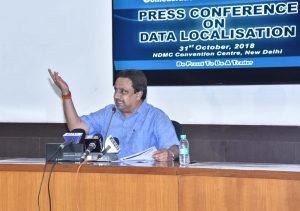Copyright 2023, IT Voice Media Pvt. Ltd.
All Rights Reserved

 In the wake of crucial issue of “data localisation” wherein the Reserve Bank of India has directed the Companies, Banks & other Institutions conducting activities in India to store their respective data secured from India within the Country, the Confederation of All India Traders (CAIT) has sought intervention of the Prime Minister to make distinction between such Companies or Institutions those who have real time data and others who use primary data for making transactions to happen.
In the wake of crucial issue of “data localisation” wherein the Reserve Bank of India has directed the Companies, Banks & other Institutions conducting activities in India to store their respective data secured from India within the Country, the Confederation of All India Traders (CAIT) has sought intervention of the Prime Minister to make distinction between such Companies or Institutions those who have real time data and others who use primary data for making transactions to happen.